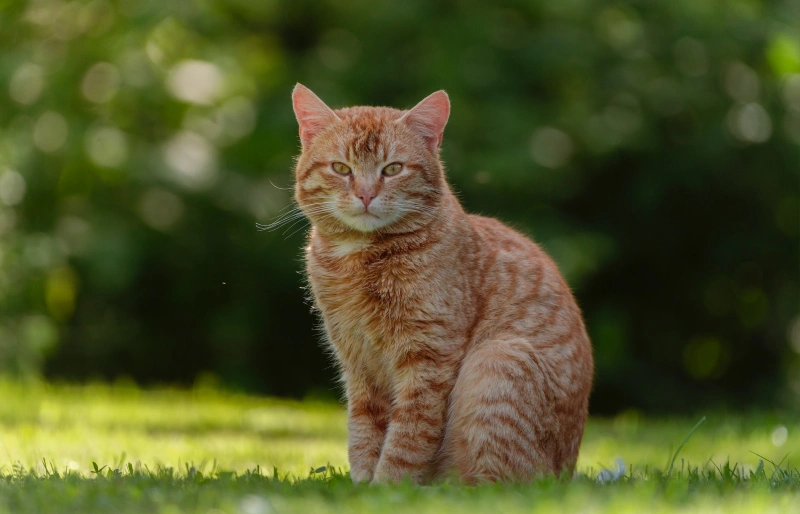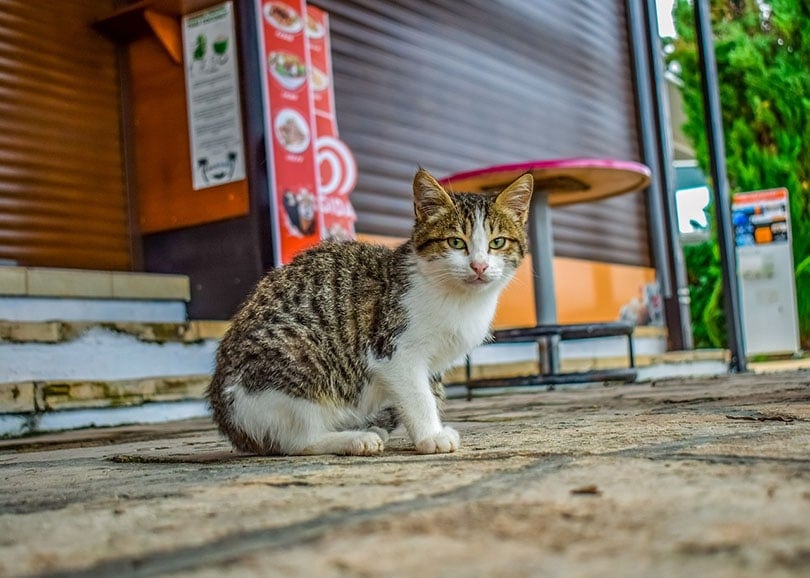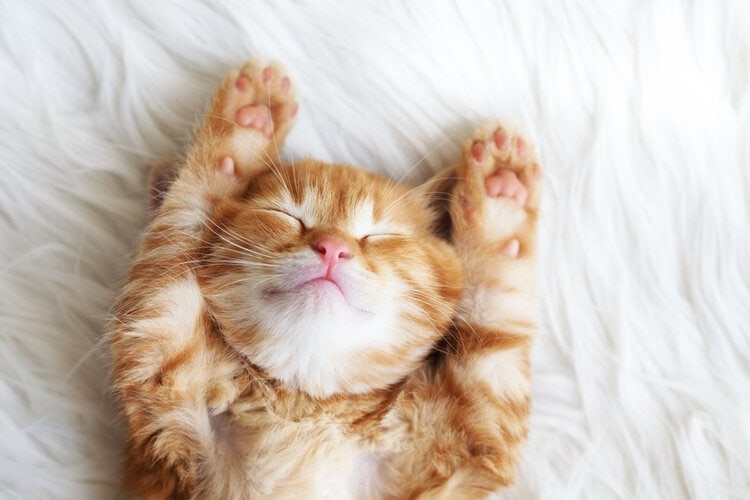Why Does Cat Pee Smell Like Ammonia? 8 Possible Reasons
Updated on
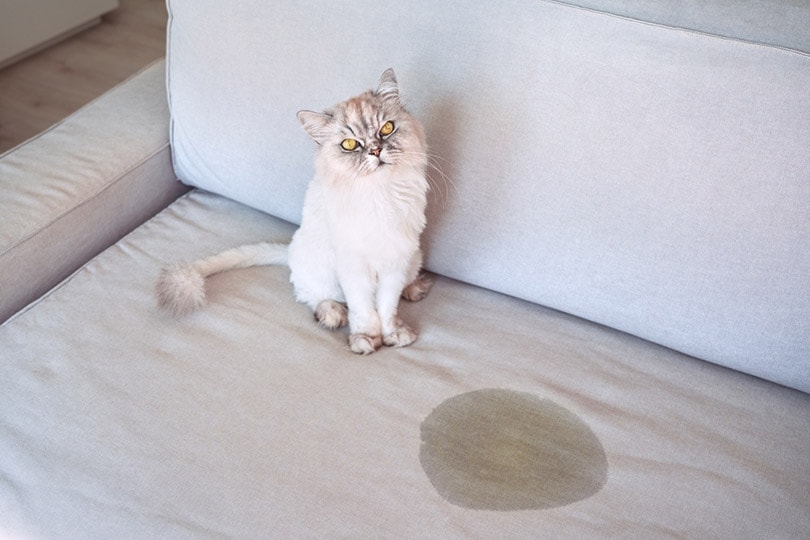
Most cat owners have noticed the smell of ammonia coming from their cat’s litter box at some point in time. What makes that strong smell coming from a creature so small? If you’re curious as to why your kitty’s urine smells so strongly and whether this is a serious issue that you should contact a veterinarian about, read on below.
We’ll share with you 8 possible reasons your cat’s urine smells like ammonia so you can determine what to do next.
Top 8 Reasons Cat Urine Smells Like Ammonia:
1. A Chemical Reaction in Your Cat’s Urine
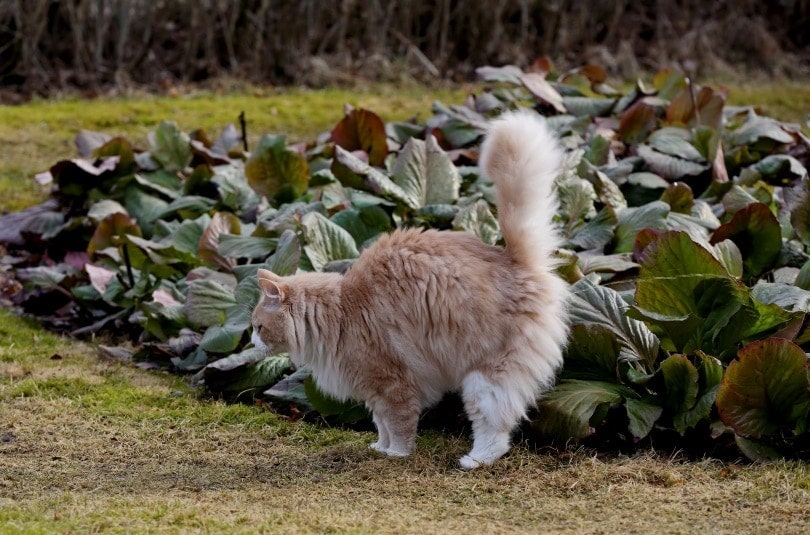
Urea is a compound found in your cat’s urine that is made up of nitrogen, carbon, and hydrogen and is responsible for the ammonia smell associated with your cat’s pee. Urea is made when proteins in your cat’s body are broken down. When urea begins to decompose it, unfortunately, releases ammonia gas.
Luckily, this ammonia isn’t dangerous to humans but can leave surfaces of your home, especially fabrics, smelling strongly of ammonia. When this chemical reaction takes place, it’s important to take your kitty to the veterinarian for a check-up.
2. Changes in Your Cat’s Diet
Changes in your cat’s diet can be one of the main reasons you’ll notice their urine smells of ammonia. This is especially true if you’ve added extra protein to your kitty’s dinner bowl. These high levels of protein can increase urea levels. This is due to the protein being broken down into amino acids.
While this may be great for your cat and allows it to rid its body of unwanted toxins, you and the family may not be pleased with the overall smell. To aid your feline during this time, make sure you offer them plenty of fresh drinking water to help fight dehydration and help dilute the heavy scent of their urine.
3. Unaltered Cat Sprays
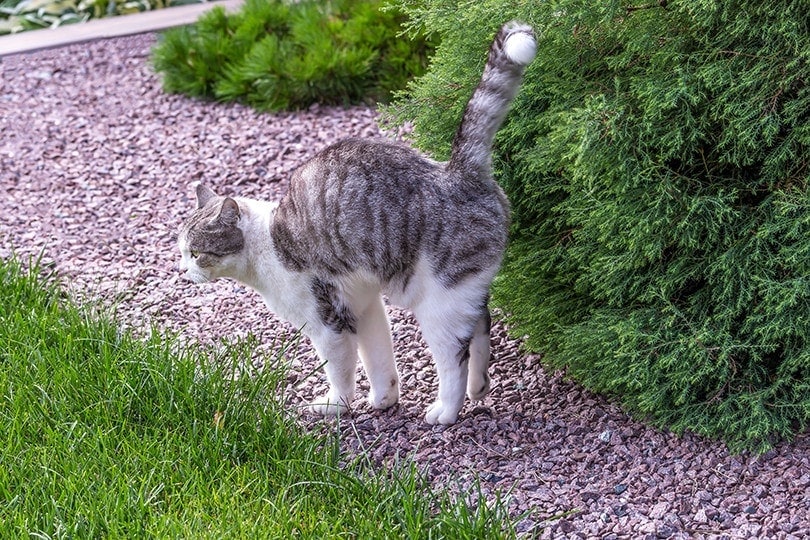
Male cats that have not been neutered are known to spray urine around the house to mark their territory. This lets other cats in the area know the home is occupied and that it would be best if they stayed away. This behavior cannot only be blamed on unaltered male cats, though. Females are also known to spray urine around the home.
Spraying often occurs in the higher-traffic areas of the home. Thanks to this marking of your cat’s territory, it’s common to have high urine odors around the house, especially near doors and hallways. Thankfully, cats can be trained to stop this behavior but once the urine is present in the home, it is difficult to eliminate the odor.
4. Your Cat Could Be Dehydrated
Dehydration is quite dangerous for your cat. It can also have adverse effects on their urine, kidneys, and bladder. When a cat becomes dehydrated, its body works overtime to conserve water. To do this, the ratio of urea to water increases. This increase will make your kitty’s pee smell stronger of ammonia.
Due to the dangers associated with dehydration in cats, if your cat has not been eating or drinking or has an upset tummy, they may be suffering from this issue, take them for a check-up with the veterinarian.
5. Signs of Aging
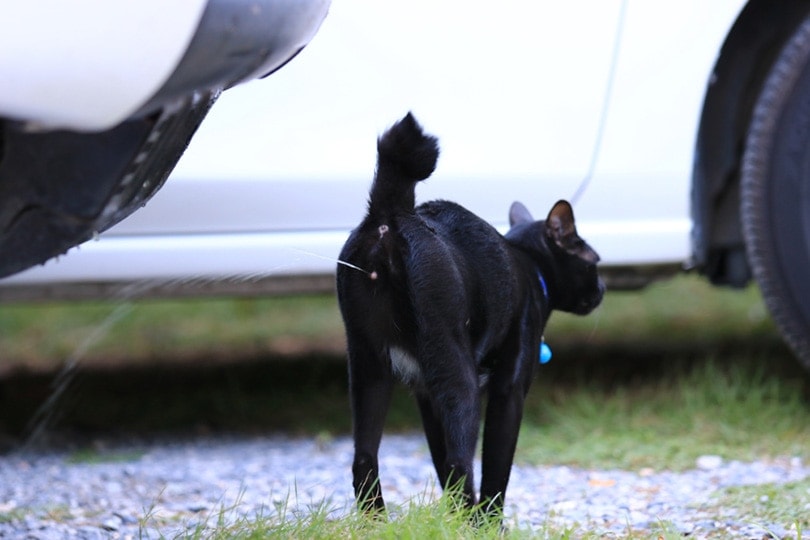
Like humans, as cats age, their bodies change. This is especially true when it comes to their renal functions. Older cats often suffer from the beginning stages of kidney failure. When this happens, they are unable to properly process toxins in their bodies, including urea.
Unfortunately, this issue with their kidneys can cause a cat’s urine to smell strongly of ammonia due to the high urea levels.
6. A Cat’s Inability to Properly Groom
Whether it is thanks to aging or possibly an injury, a cat being unable to properly groom itself can cause big issues. This causes dirt and possibly urine and feces to build up on the kitty’s hindquarters. No matter the issue with your pet, it is important you ensure they see a vet if you suspect difficulties with mobility or pain are impacting how they can groom themselves.
7. Urinary Tract Infections
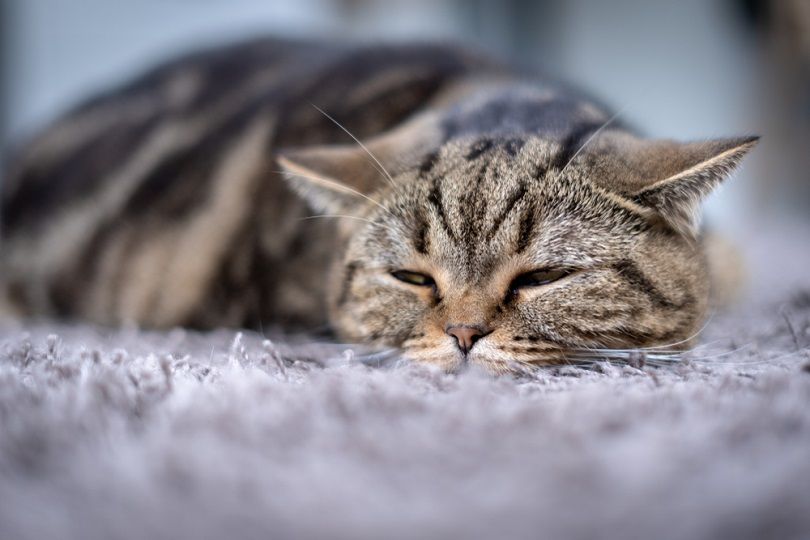
Urinary tract infections can be quite dangerous for your cat. The early warning signs of these infections include difficulty peeing, frequent urination, blood in your cat’s urine, and pain while urinating.
Due to the pain and discomfort, your cat may experience during a urinary tract infection, they may urinate around the home instead of in their litter box. With this happening it is common to notice a stronger smell of ammonia. By taking your kitty to the vet and receiving proper treatment, urinary tract infections can be easily taken care of in most situations.
8. Kidney Disease or Other Kidney Issues
Your cat’s kidneys are used to help eliminate waste from your pet’s body. When they aren’t working as they should, these toxins stay in your kitty’s body and may make their urine smell differently. Unfortunately, if your cat is suffering from kidney disease or other types of kidney issues, their urine may smell highly of ammonia.
If you feel your cat is suffering from any type of kidney issues, schedule a visit with the vet immediately.
Conclusion
If your cat’s urine has a strong smell of urine, it is always best to contact your veterinarian. They can help you determine which of these possible reasons is the culprit while also helping your kitty not only feel but smell better. To be a responsible pet owner, you must keep a close eye on your pets and take notice when something isn’t as it should be.
This will ensure your cat stays happy, healthy, and by your side for years to come.
Featured Image Credit: Creative Cat Studio, Shutterstock



